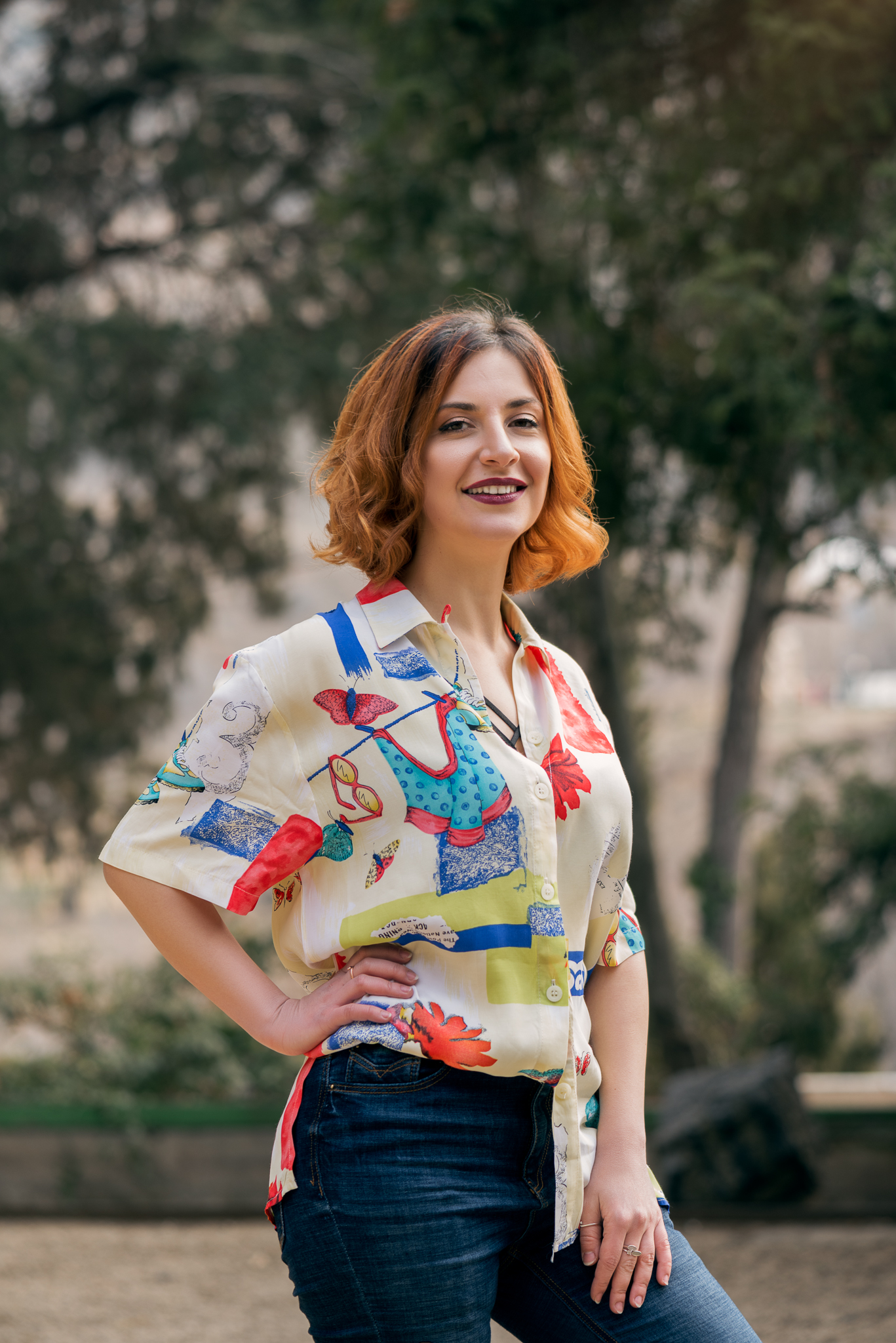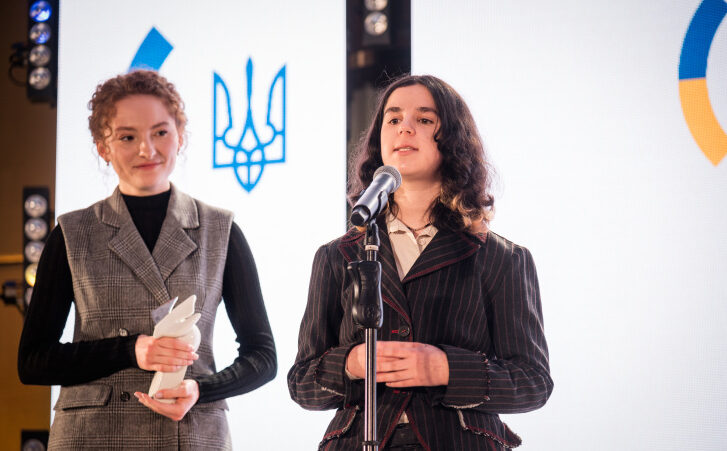
Art – Best Remedy to the Pandemic Depression
How it has started
2020 has been a challenging year for us all. New COVID-19 related restrictions put the world population in lockdown and self-isolation. Accordingly, we had to adjust to a new lifestyle, as digital communication and a constant feeling of uncertainty has become a new normal. The recent process of intensifying digital professional and personal communications affected everyone, including young people. Even though the millennials have a comparative advantage in digital literacy, switching to online living standards significantly influenced their mental health. In every era of human history, youth has played a prominent role in bringing social change. In this very uncertain moment, young people are in the spotlight to introduce creative alternatives and help each-other in overcoming the pandemic and post-pandemic depression. A Team of Georgian Young European Ambassadors find art as the best instrument to assist other fellows to maintain a positive approach to life!
Let’s view things in retrospect
The Coronavirus Pandemic happened unexpectedly when the majority of us were viewing themselves “in 5 years.” In those plans, we were successful, settled, and stable. Conversely, the new mainstream is to fear about the health conditions, worry because of social distancing, doubt about the job security, and try to ignore financial liabilities as well as worsened eating and sleeping habits.[1] However, it is the perfect time to stop and think, whether those plans were credible and re-evaluate life. Thus, it is also the perfect moment to set new objectives and lifetime milestones for the next decades. Quite unexpectedly, a broader audience including myself became aware of the international events dedicated to promoting advocacy of the human emotional and behavioral conditions. Back on October 10, 1992, the World Mental Health day was introduced and launched by Richard Hunter, the Deputy Secretary-General of the World Federation for Mental health.[2] It is vitally important to join the World Mental Health campaign and contribute to increase the awareness of the public in the relevant issues.
The EARTh without “Art” would be just “Eh”
Apart from bringing beauty and new perspectives, art has the power to heal. According to Dr. Christina Blomdahl – A licensed occupational therapist and art therapist, Ph.D. in the institute of health and care sciences, Art therapy represents one of the most successful tools to facilitate the health improvements of the patients.[3] Taking the latter into account, on behalf of the World Mental Health Day, Young European Ambassadors organized a creative workshop on October 10, 2020.
Young European Ambassadors in the Spotlight
The event was hosted by Giorgi Eliozashvili – A young European Ambassador and enthusiastic artist from Georgia. He introduced sculpting – as a tool to intensify creative thinking and decrease overall stress levels. Young people from about 8 Georgian cities (Tbilisi, Kutaisi, Gori, Kareli, Kaspi, Zugdidi, Samtredia, Bakuriani) joined the event. The participants were mentored in sculpturing the patterns of roses or creating the concept of the Swans’ Lake. Some of the attendees also introduced their own concept, such as sculpturing the Guns N’ Roses. At the end of the Art workshop, everyone was thrilled to see their sculptures and enjoy its diverse nature. At the end of the 2-hour art workshop, we resulted in the blue roses and yellow swans swimming at the violet lakes. I was more than excited to view everyone involved has experienced a very positive Saturday afternoon of the most beautiful month of the Autumn!
As many countries lack healthcare professionals in the field of mental health, artists and active young people should be the ones to take responsibility in this regard. After finding the bold spirit and small incentives to be happy about, people will become more immune to the medium or higher level of stress. To address to the later issue, a team of Young European Ambassadors from Georgia will be considering different creative instruments directly or indirectly in their future activities.
A few words from the author
Global pandemics used to happen throughout human history. The COVID-19 is not the first and, unfortunately, the last pandemic modifying the living standards of the society. As we, humans are the most intelligent creatures ever lived on the Earth, we should be able to overcome such unexpected obstacles in a well-organized manner. Creative art, along with the other instruments, such as social interactions with family members and friends, doing sports, singing, jogging, doing Yoga, following a healthy diet, or sleeping routine, should be actively used to stay focused and adjusted to the new reality. I strongly believe we will overcome the worries – the ramifications of the current global uncertainty and adhere to the new plans for the progress, as we have always done.
[1] CDC- Centers for Disease Control and Prevention, Pandemic can be stressful, July 1, 2020
[2] WFMH – World Federation for Mental Health, World Mental Health Day History, https://wfmh.global/world-mental-health-day/
[3] Science Daily, Clear effect of art therapy on severe depression https://www.sciencedaily.com/releases/2017/11/171106100128.htm
Acknowledgment
Mariam Khuroshvili – Active mentor of Georgian Young European Ambassadors; former Young European Ambassador in 2017-2020 years. Eastern Partnership Civil Society Facility Fellow since 2017 and current Regional Project Coordinator for the EU-funded Project “More Influence of Youth on the Local Environmental Agenda in Georgia and Ukraine.”

LATEST

Building Europe: Poland’s experience of joining the European Union and lessons for Ukraine

World Health Day 2024: My Health, My Right

EUREKA MEETS EUROPE – opportunities to develop and study. My experience

Can you wear pink in the workplace?

Go where your deepest fears lie: finding the courage to overcome gender barriers in STEM
More campaign pages:
Interested in the latest news and opportunities?
This website is managed by the EU-funded Regional Communication Programme for the Eastern Neighbourhood ('EU NEIGHBOURS east’), which complements and supports the communication of the Delegations of the European Union in the Eastern partner countries, and works under the guidance of the European Commission’s Directorate-General for Neighbourhood Policy and Enlargement Negotiations, and the European External Action Service. EU NEIGHBOURS east is implemented by a GOPA PACE-led consortium. It is part of the larger Neighbourhood Communication Programme (2020-2024) for the EU's Eastern and Southern Neighbourhood, which also includes 'EU NEIGHBOURS south’ project that runs the EU Neighbours portal.

The information on this site is subject to a Disclaimer and Protection of personal data. © European Union,